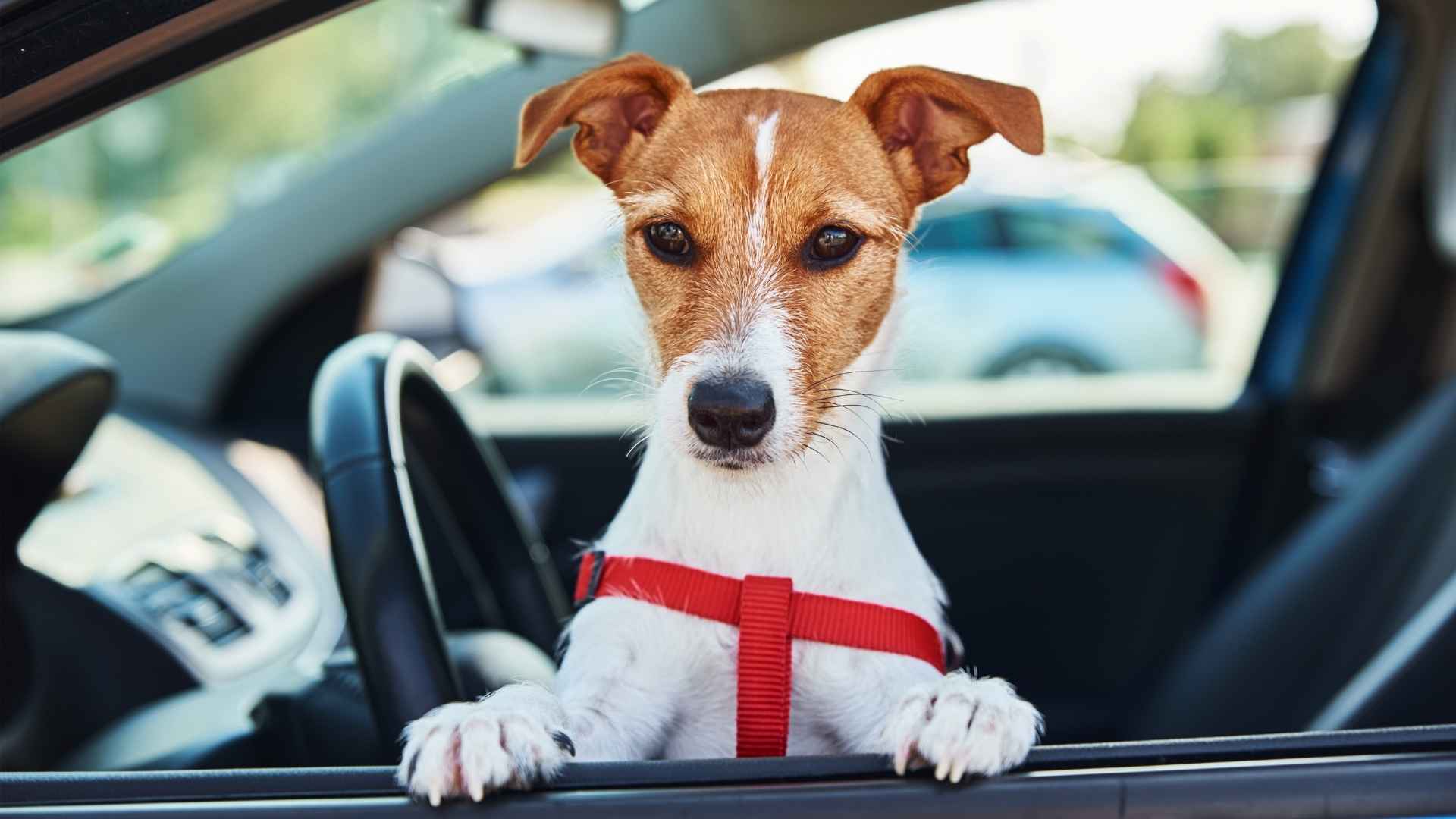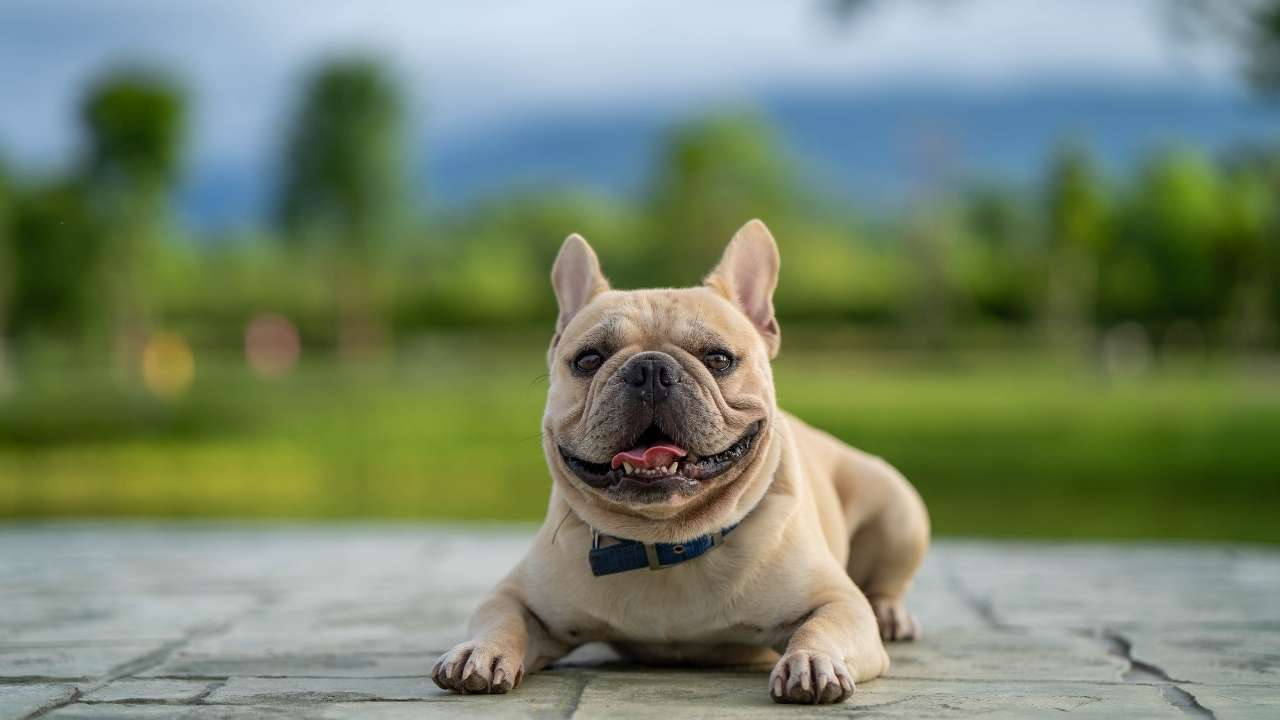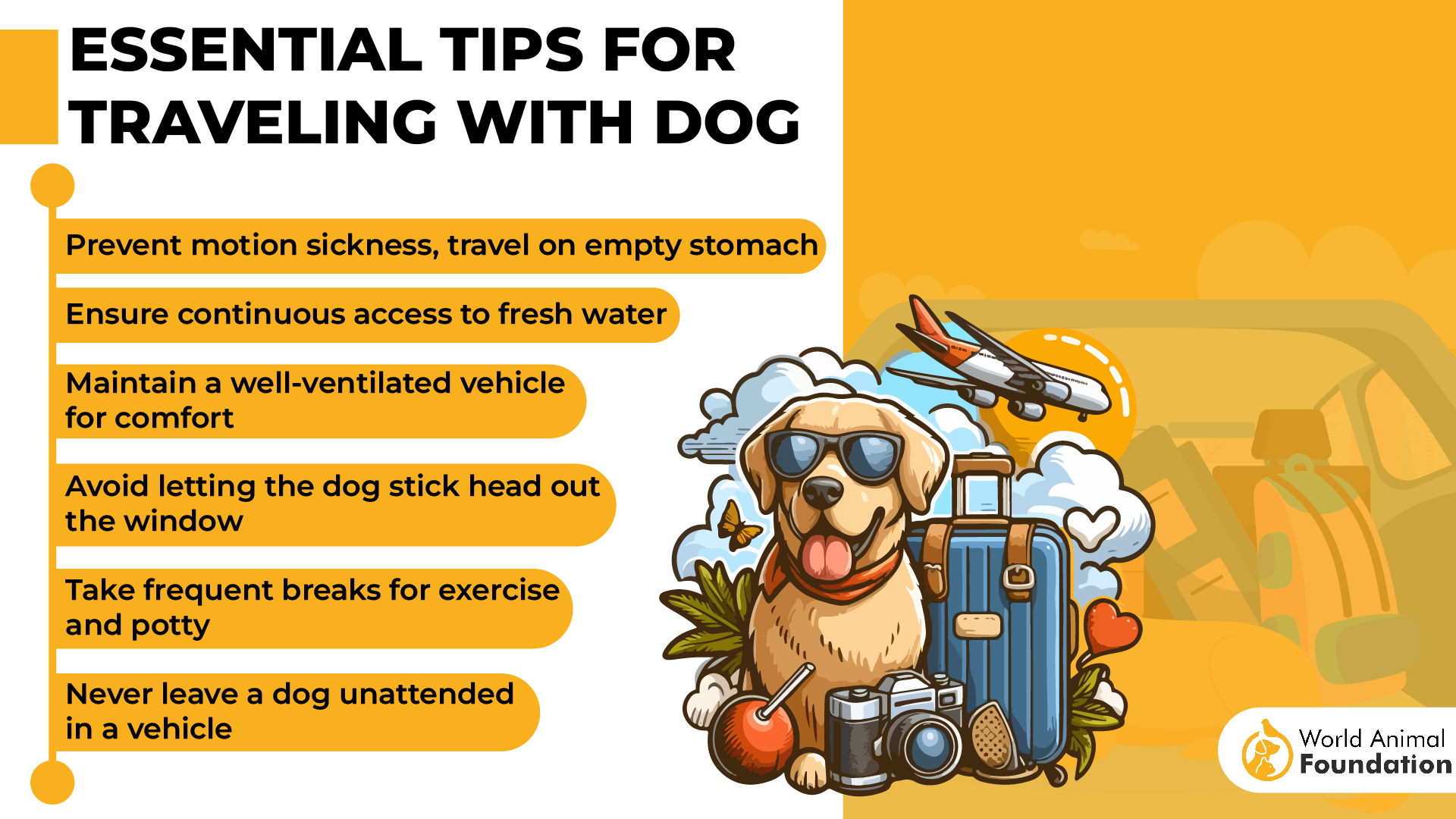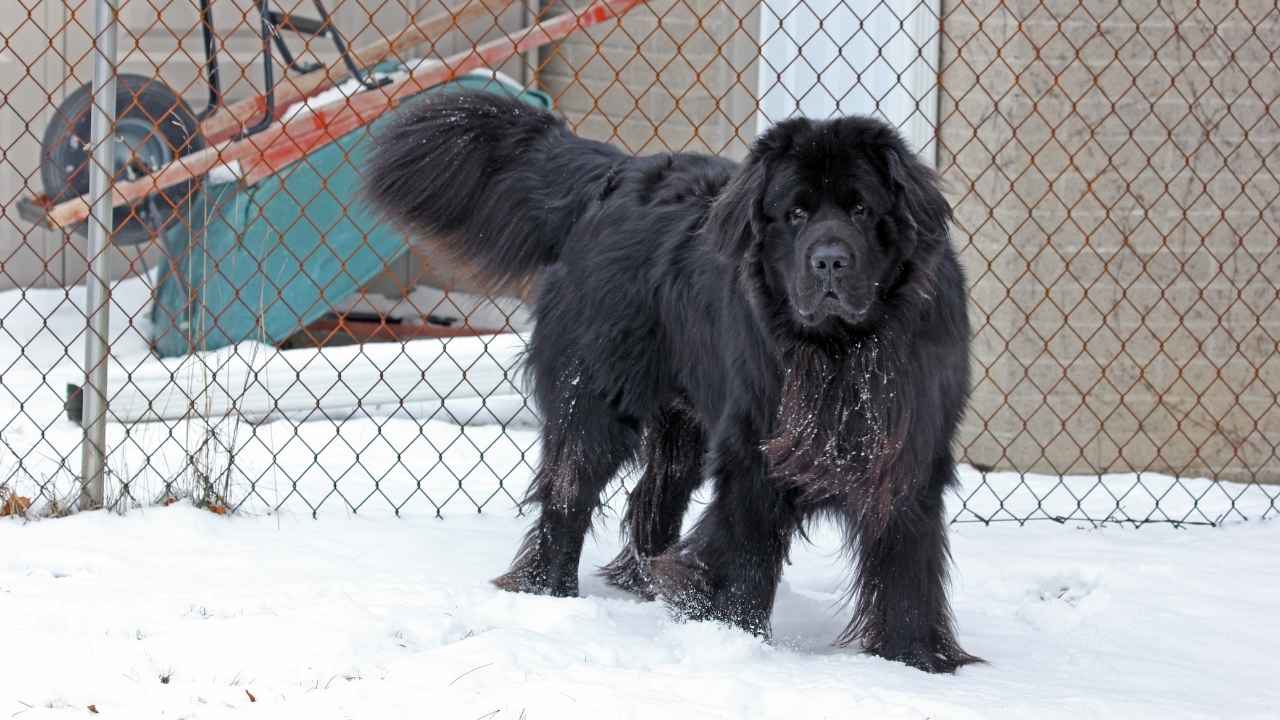For many dog owners, the prospect of a road trip with their furry friend sounds delightful, but for some breeds, car rides are anything but enjoyable. In fact, certain dogs tremble at the thought of hopping into a vehicle, transforming what should be an exciting adventure into a stressful ordeal. Understanding which breeds are prone to this anxiety is the first step in helping them overcome it. In this exploration, we’ll uncover seven dog breeds with a natural aversion to car rides and provide effective strategies to ensure every journey feels safe and comfortable for your canine companion.
Some dogs can’t wait to hop in the car, but for others, the thought of a car ride feels like a trip to the vet. If your dog dreads car rides, you’re not alone. It’s not just about motion sickness—many dogs experience anxiety, discomfort, or even fear when it’s time to get in the car.
Whether it’s a short drive or a long road trip, the struggle is real. But don’t worry—understanding why your dog feels this way and knowing which breeds are more likely to avoid car rides can help make future journeys easier.
In this article, we’ll explore the 7 dog breeds that tend to hate car rides and share some practical tips to help your dog enjoy the ride.
Dog Breeds That Hate Car Rides
1. Chihuahua
Chihuahuas are known for their small size and big personalities, but their delicate frame also makes them more sensitive to various stimuli, including car rides. As per PetMD, due to their high energy and nervous temperament, many Chihuahuas experience anxiety and motion sickness during car trips. This can be exacerbated by the vibrations and noise of the vehicle, causing discomfort.
Gradual Exposure to Ease Motion Sickness in Chihuahuas
The motion of the car can make them feel unsettled, and some may even get car sick. For pet parents looking to help their Chihuahuas enjoy car travel, gradual exposure can help. Start with short car journeys and ensure they are comfortable in the back seat.
Keep a routine that includes visits to dog parks, and reward them with treats to associate car rides with positive experiences. Patience and training are key to helping your Chihuahua feel at ease during longer car trips.
2. Shih Tzu
Shih Tzus, often described as affectionate domestic dogs, generally enjoy being close to their humans but may not be as fond of long car trips. While some may relish short trips, others can experience discomfort when riding in the car for extended periods.
Easing Car Anxiety in Shih Tzus with Short Trips
These dogs often prefer the back seat, where they can feel secure and relaxed. However, the vibrations and constant motion of the car can trigger anxiety, making them reluctant to get into the vehicle. To help your Shih Tzu enjoy car rides more, start with short trips to familiar places, like a local park or drive-thru.
Gradual exposure can help reduce their stress, making them more at ease during car journeys. Additionally, providing treats and positive reinforcement can turn car rides into a pleasant experience for your canine companion.
3. Pekingese
Pekingese puppies are known for their laid-back nature and loyalty, often preferring the comfort of their loving home to the unpredictability of car journeys. These dogs, despite their fun and charming personalities, can become anxious when riding in the car.
Reducing Stress During Car Rides for Your Pekingese
The confined space, especially in the driver’s seat or back seat, might make them feel uneasy. As per Pekingese Central, some Pekingese may show signs of stress, such as panting or whining, as soon as the car starts moving. To help reduce anxiety, it’s essential to make car rides a positive experience by associating them with rewards like their favorite food or treats.
Start by taking short trips and gradually increasing the length, always ensuring your pup feels safe on their leash or crate. With patience and training, your Pekingese can learn to enjoy the ride, whether it’s a trip to the beach or a visit to the vet.
4. Basset Hound
Basset Hounds are known for their calm demeanor and love for leisurely walks around the house or neighborhood. However, when it comes to car rides, they may not share the same enthusiasm. Many dogs, like Basset Hounds, find car travel stressful and may resist sitting in the car.
Easing Basset Hound Anxiety with Short Car Trips
Once you start driving, these dogs can become anxious, especially if they’re not used to the motion or confined to a crate. It’s important to address this discomfort with patience. Start by taking short trips down the driveway or around the block, gradually increasing the distance.
Basset Hounds need exercise, and making car rides part of their routine—like a walk to the park or a vet visit—can help them adjust. Consistent training and a calm approach will make the journey more enjoyable for both you and your loyal canine companion.
5. Bulldog
Bulldogs, with their muscular build and laid-back nature, might seem like they’d be perfectly fine with car journeys, but the reality is quite different. Many Bulldogs are not fans of car rides. They tend to get anxious, especially in the confined space of a car’s back seat, and may display behavior such as drooling or panting.
Gradually Easing Bulldog Anxiety During Car Rides
A Bulldog’s discomfort can be exacerbated by the noise of the engine or the movement of the vehicle. But with patience and proper training, you can help your Bulldog enjoy car trips. Start with short trips to new places, like a dog park or a quick ride to their next meal, allowing them to associate car rides with positive experiences.
Open windows during the drive to let fresh air in, and be patient as you gradually build their confidence on the road. With consistent efforts, your Bulldog will learn that car trips can be fun, not stressful.
6. Mastiff
Mastiffs, renowned for their massive size and calm demeanor, are known as gentle giants in the dog world. However, their size can make car travel a challenge. Many Mastiffs experience discomfort when confined to the back seat, especially if they’re not accustomed to being inside a car. They may struggle with anxiety during trips, becoming restless or car sick.
Helping Young Mastiffs Adjust to Car Rides
For young Mastiffs, early exposure to car rides can help them adjust over time. If your Mastiff is anxious, start by introducing short, calm car trips to familiar places, like a local shelter or dog park, to build positive associations. Gradually, they’ll begin to enjoy the excitement of getting out of the house and exploring new places.
If the anxiety is severe, consult a veterinarian, who might recommend medication to ease the stress. With patience and training, your Mastiff can learn to love car journeys, transforming a stressful situation into an enjoyable one.
7. Newfoundland
Newfoundlands are known for their gentle and easygoing nature, making them wonderful companions for road trips. While they may not always enjoy long car rides immediately, with a bit of training, many Newfoundlands can learn to relax and sit comfortably during car journeys.
Gradual Car Rides for Comfort
As per Britannica, their calm demeanor allows them to settle in the back seat, especially when they’re in the company of their humans. A gradual introduction to road trips, starting with short car trips and progressing to longer journeys—can help ease any anxiety. On these trips, ensure that your Newfoundland is safely secured, either with a leash or in a crate, to help them feel more secure.
It’s essential to lead the way with positive reinforcement, offering treats and praise for calm behavior. As your Newfoundland becomes accustomed to car travel, you’ll see a shift from initial reluctance to full enjoyment of these road trips, creating wonderful memories together.
Conclusion
While not all dogs enjoy car rides, with patience and the right training, they can gradually feel more comfortable. The key is understanding each breed’s unique temperament and adjusting your approach accordingly.
Whether through short trips or creating positive associations with car journeys, your canine companion can eventually learn to enjoy the ride. Remember, every dog is different—so take it one step at a time!
In conclusion, while some dog breeds may naturally dislike car rides due to anxiety, motion sickness, or past negative experiences, owners can implement several strategies to improve their pets’ comfort during travel. Gradual desensitization, using positive reinforcement, ensuring the dog’s physical comfort, and consulting with a veterinarian for possible remedies can significantly alleviate stress. By understanding the specific needs and triggers for your dog’s discomfort, you can transform car rides into a more pleasant experience, enhancing both safety and enjoyment for you and your furry companion.









